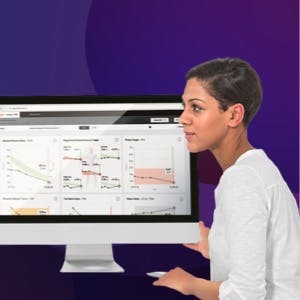- Home
- All updates
- EDGE Insights
- Industries
- Company Search
- My Watchlists (Beta)
EDGE Insights
Filter
EDGE Insights
Hospital interoperability: Moving toward data liberation
Hospital Interoperability
Sep 13, 2022
Last week:
EDGE Insights
State of tech in Financial Services: How AI, blockchain, and biometrics are forging the future
Financial Services
Nov 13, 2024
EDGE Insights
Ultra-Fast Delivery
Retail Industry Robots
Nov 11, 2024
EDGE Insights
ElevenLabs: The software platform for generating natural-sounding text-to-speech.
Generative AI Applications
Nov 6, 2024
EDGE Insights
Glean: An enterprise search and knowledge discovery platform to improve workplace productivity
Generative AI Applications
Nov 6, 2024
EDGE Insights
Hebbia
Information Technology
Nov 5, 2024
EDGE Insights
Virta Health: The virtual care platform reversing Type 2 diabetes and reducing medication for chronic metabolic conditions
Preventive Healthcare
Nov 5, 2024
EDGE Insights
2024 US elections: Comparing key industry impacts of Democratic and Republican presidencies
Oct 28, 2024
EDGE Interview
Art Levy, Chief Business Officer of Brex, on the strategy of Brex Embedded
Neobanks
Oct 24, 2024
EDGE Insights
ClickUp, an all-in-one productivity platform that combines project management, documents, tasks, and chat.
Remote Work Tools
Oct 23, 2024
EDGE Insights
Next-gen Climate & Energy (Q3 2024): CCUS and hydrogen in spotlight; investors remain cautious ahead of US elections
Energy & Climate Change
Oct 16, 2024

Hospital Interoperability
By Sahrah Surajdeen · Sep 13, 2022
Hospital interoperability: Moving toward data liberation
Stay sharp with our email newsletter
Applying a holistic view when treating a patient could significantly improve outcomes achieved by healthcare providers. Therefore, the future of healthcare will include the seamless and timely exchange of patient information between different healthcare providers and organizations across the entire industry–interoperability.
In a push toward interoperability, 96% of hospitals have moved to electronic health records (EHRs) from traditional paper-based systems; however, this has brought about a brand new set of challenges, as patient data remains siloed even today. The fax machine still prevails, accounting for nearly 70% of all medical communication. Thus, health information exchanges, natural language processing, automated algorithms, and application programming interfaces (APIs) are becoming increasingly popular in enhancing interoperability.
The healthcare industry will likely undergo more standardization and technological advancements in the coming decade to support widespread data transmission and interoperability adoption following newly enacted rules and regulations. The interoperability space has raised a total of USD 2.0 billion as of August 2022, with data platforms such as Gorilla Health and clinical data exchange platforms such as Moxe Health and Particle Health raising funding in 2022.
In this Edge insight, we take a look at the current landscape of hospital interoperability, rules and standards supporting it, underlying demand factors driving its adoption, and what the future of interoperability would look like.
Contact us
Gain access to all industry hubs, market maps, research tools, and more
Get a demo
By using this site, you agree to allow SPEEDA Edge and our partners to use cookies for analytics and personalization. Visit our privacy policy for more information about our data collection practices.